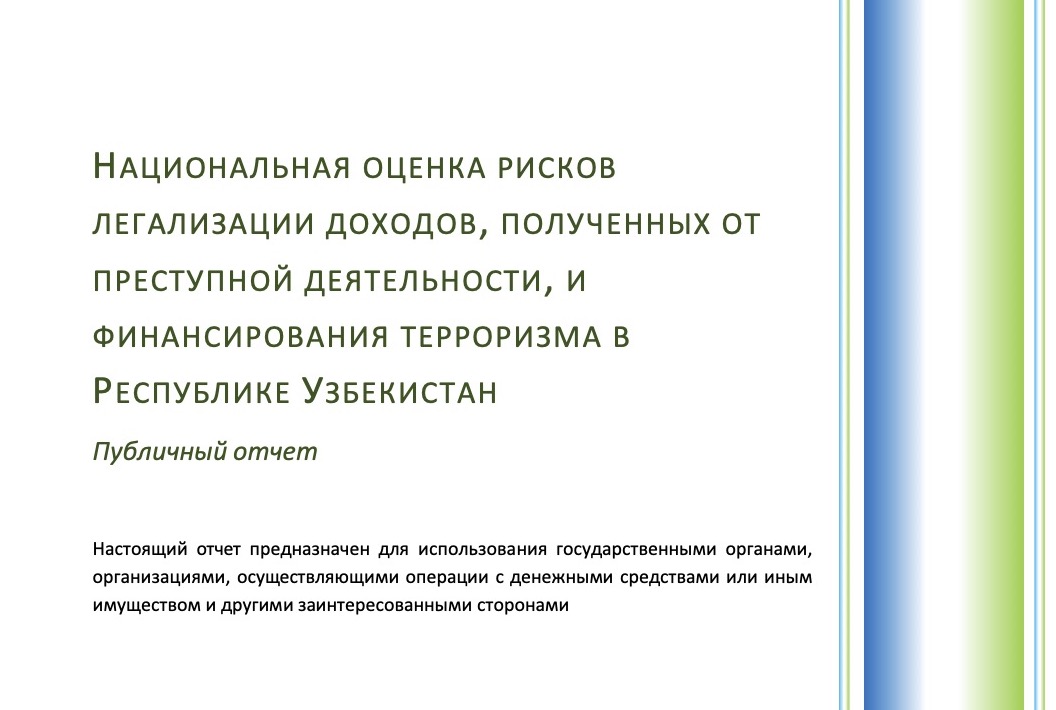National Risk Assessment of the Legalization of Income Obtained from Criminal Activities and the Financing of Terrorism in the Republic of Uzbekistan
Description
This assessment report (in Russian) was produced as part of the activities under the project "Support to Uzbekistan in anti-money laundering and combating the financing of terrorism (AML/CFT)" implemented by the OSCE Project Co-ordinator in Uzbekistan
Summary
The national Anti-Money Laundering and Counter-Terrorism Financing (AML/CFT) system of the Republic of Uzbekistan is based on the 2004 adoption of a law focused on “Counteracting the Legalization of Proceeds from Crime and the Financing of Terrorism”, which came into force on January 1, 2006, and was revised multiple times since due to changes in international AML/CFT standards. Over time, a legal framework for AML/CFT has been established in each sector and internal control mechanisms are in force binding organizations carrying out transactions involving monetary funds or other property.
Identifying and understanding risks is an integral part of the Financial Action Task Force (FATF) Recommendations, which are recognized by the global community as international standards for combating money laundering and the financing of terrorism (AML / CFT). This National Money Laundering and Terrorist Financing (ML/TF) Risk Assessment (NRA) is based on the FATF National Money Laundering and Terrorist Financing Risk Assessment Guidelines (2013), while also taking into account the ML/TF risk assessment methodologies of the World Bank, the International Monetary Fund and sectoral assessments conducted in Uzbekistan. Overall, ML/TF risks are derivatives of threat, vulnerability and consequences, which means the potential for the occurrence of events related to ML or TF.
The assessment results highlighted a need to develop and prioritize a national AML/CFT strategy. In order to reduce the identified risks, measures should be taken to further combat corruption by implementing the relevant FATF Recommendations, suppressing the activities of illegal payment systems, thoroughly analyzing the activities of NGOs and monitoring their activities. Additionally, countering tax and customs offences, trade violations, mitigating the requirements for confidentiality of information in certain sectors, strengthening communication, cooperation and information exchange both at the national and international level and introducing the requirement for mandatory parallel financial investigations are actions recommended by the NRA.
Furthermore, the assessment suggested to carry out a number of medium- to long-term measures aimed at reducing risks, including the introduction of adequate control mechanisms concerning the issuance of cash at the level of financial institutions, the expansion of the analytical component of internal control and ensuring controlled access to departmental databases for all government agencies and for the private sector. Lastly, the implementation of a national customer identification and verification system, the implementation of compliance procedures as well as the organization of specialized trainings for investigators and judges on AML/CFT issues were advised.
